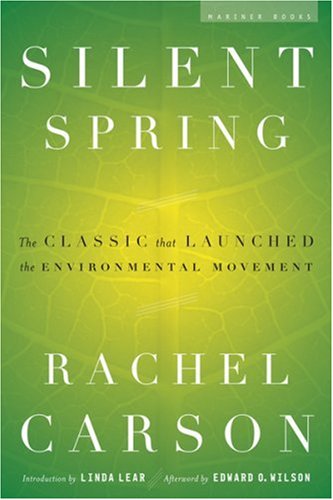All Nonfiction
- Bullying
- Books
- Academic
- Author Interviews
- Celebrity interviews
- College Articles
- College Essays
- Educator of the Year
- Heroes
- Interviews
- Memoir
- Personal Experience
- Sports
- Travel & Culture
All Opinions
- Bullying
- Current Events / Politics
- Discrimination
- Drugs / Alcohol / Smoking
- Entertainment / Celebrities
- Environment
- Love / Relationships
- Movies / Music / TV
- Pop Culture / Trends
- School / College
- Social Issues / Civics
- Spirituality / Religion
- Sports / Hobbies
All Hot Topics
- Bullying
- Community Service
- Environment
- Health
- Letters to the Editor
- Pride & Prejudice
- What Matters
- Back
Summer Guide
- Program Links
- Program Reviews
- Back
College Guide
- College Links
- College Reviews
- College Essays
- College Articles
- Back
Silent Spring MAG
"Then a strange blight crept over the area andeverything began to change. Some evil spell had settled on the community...Everywhere was a shadow of death." The year is 1962, and this diredescription is not from a science-fiction novel, but from what is perhaps thegreatest ecologically aware protest ever written: Silent Spring, by RachelCarson. This work is easily one of the most - if not the most - effective bookson the changing views of environmental conditions.
The book is acollection of essays with sub-themes that form a strong environmentalistargument. Carson exposes things that otherwise go unnoticed, revealing thenot-so-distant past and disturbing possibilities for the future. The essaysdepict as countless horrors everyday occurrences that go ignored. The sounds andsights of nature are devastated by our creations. If this is the result oftechnology and science, then is it worth "advancing" from lesscivilized society?
Carson's presentations of DDT statistics and chemicalproduction are equally potent in their capacity to amaze and disgust us. Theexplanation of how these poisons pass through the ecosystem and food chain areequally disturbing. This exposé graphically illustrates every eco-horrorthat comes to mind.
No single book has ever captured such distaste bybeing so humble. It can be stated that this work may have even altered the courseof history. In 1962, there were few laws concerning the environment and certainlyno DDT bans. Yet, shortly after the publication of this book, hundreds oflawmakers began to look at the effects of these chemicals.
We must allrealize that the chemicals in insecticides, pesticides and herbicides arepoisons, and that they must affect us in addition to the organisms they are meantfor. I did not expect to discover that my food is often contaminated. To think weeat poison every day as a result of our lack of conscientiousness is absurd. Andit is true and scary to think we have yet to establish real control over this.Silent Spring points out all the possible outcomes, however adverse they maybe.
Carson's apprehension over our civilization's approach to theenvironment drives this book. She fights against poisons that try to roborganisms of their lives. Her words are her weapons and she takes on an entiresociety. The last book to accomplish as much change was Upton Sinclair's TheJungle. Carson's book continues, 40 years after the fact, to affect a nation soself-absorbed that the reality of our toxins still goesunnoticed.
Similar Articles
JOIN THE DISCUSSION
This article has 1 comment.


0 articles 0 photos 12292 comments